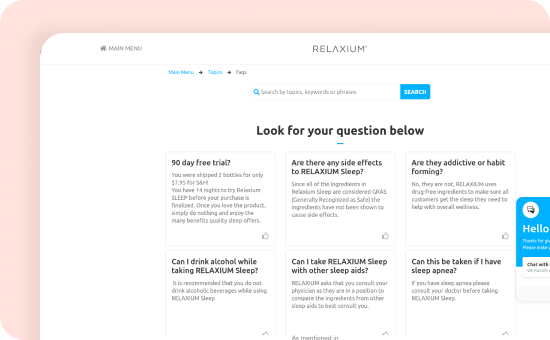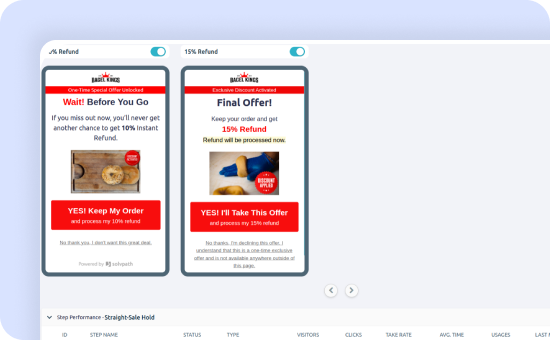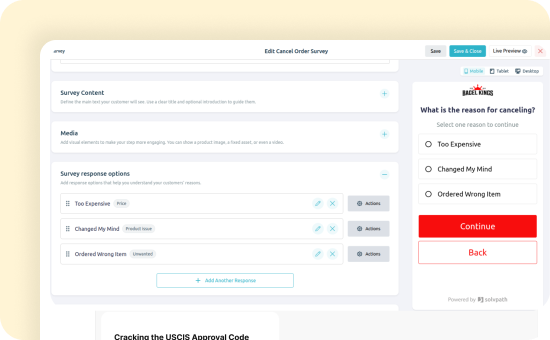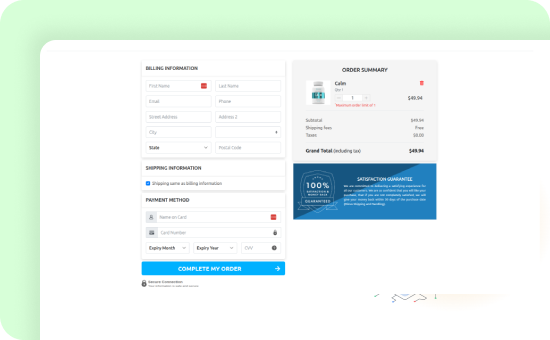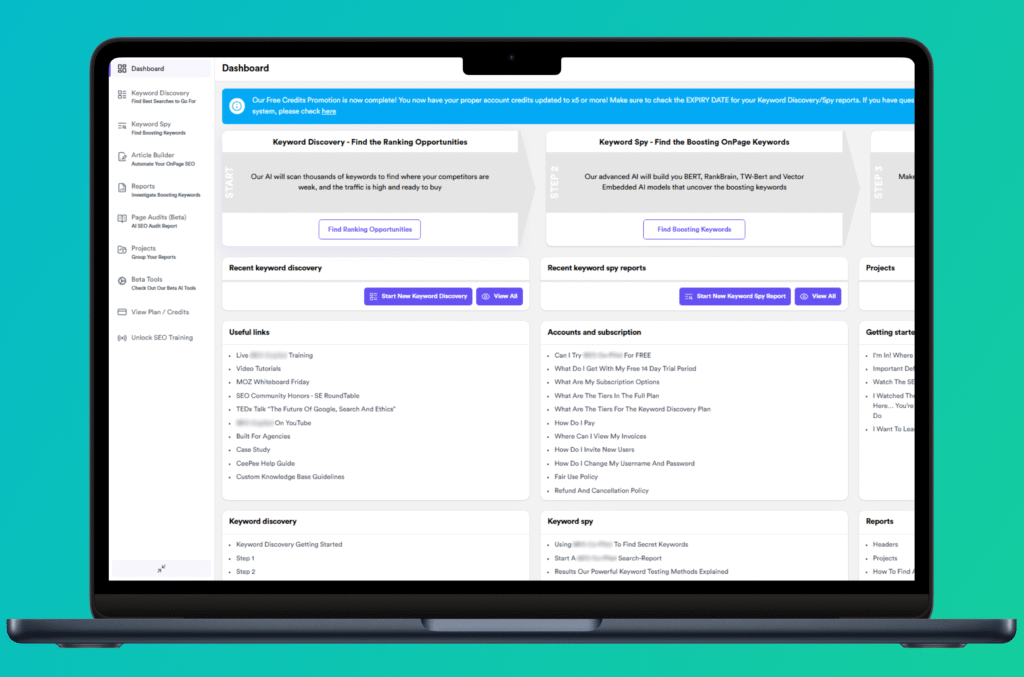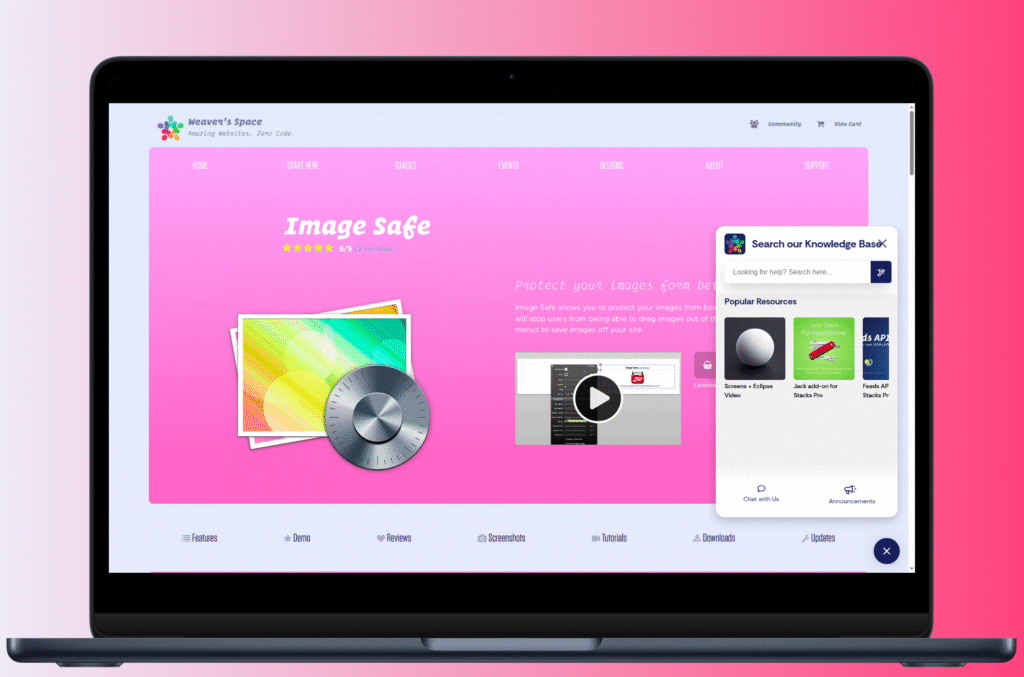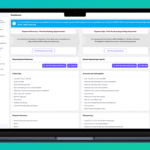We developed a fully automated self-service support platform to help e-commerce businesses reduce their reliance on call centers and improve customer experience. Built with scalability and performance in mind, the platform empowers end-users to resolve common and complex issues independently, saving time, cutting costs, and providing valuable insights through built-in analytics.
AI Solution For Customer Support Without Human Interaction
AI Solution For Customer Support Without Human Interaction
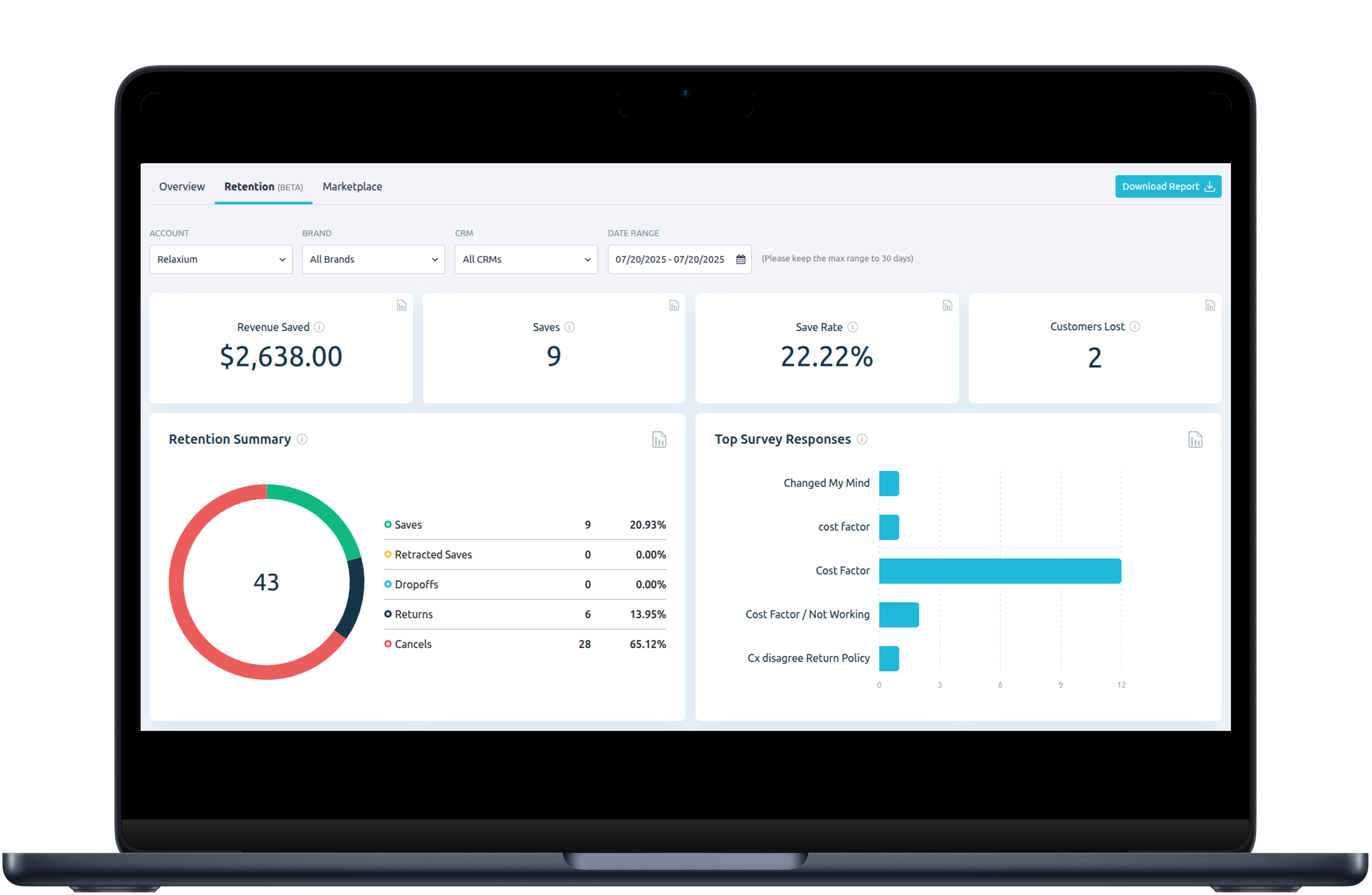
Problem
The client needed a scalable and cost-effective solution to replace traditional call center support, which had become increasingly inefficient and expensive. They were looking for a way to automate both simple and complex customer service tasks, such as order tracking, returns, cancellations, and FAQs, while providing a seamless experience for users on mobile and desktop.
Solution
We developed a cutting-edge e-commerce support platform designed to streamline customer service operations while providing powerful insights into user behavior. Focused on functionality, scalability, and cost-efficiency, the platform transforms how businesses interact with their customers.
Use Cases
Team
Services We Offered
Market Specifics
Deliverables
A Web-Based SaaS Platform
Client Goals
The client engaged us to build a powerful self-service support ecosystem geared toward e-commerce brands. Their specific aims included:
Empower Customers With Self-Serve Support Options
Enable visual, self-serve support flows for customers to resolve issues like returns, tracking, and troubleshooting.
Reduce Customer Support Costs Significantly
Slash customer support costs by up to ~65% by automating inbound tickets and reducing call center overhead.
Deliver Agent-Level Support Quality
Maintain quality equivalent to a live agent’s support, ensuring users still receive comprehensive and accurate resolutions.
Proactively Address Customer Needs With AI
Identify customer intent proactively through an AI-powered Help Desk that anticipates questions and delivers relevant answers.
Gain Actionable Insights With Real-Time Analytics
Capture meaningful analytics on user behavior, such as support journey paths, and provide real-time reporting to optimize workflows.
Launch Quickly With Easy Customization
Ensure quick deployment and easy customization, enabling businesses to launch self-help support within days and tailor it to their brand and use case.
Target Audience
E-commerce Brands
Customer Support Teams
SaaS and DTC Businesses
Operations & CX Executives
Startups & Growing Businesses
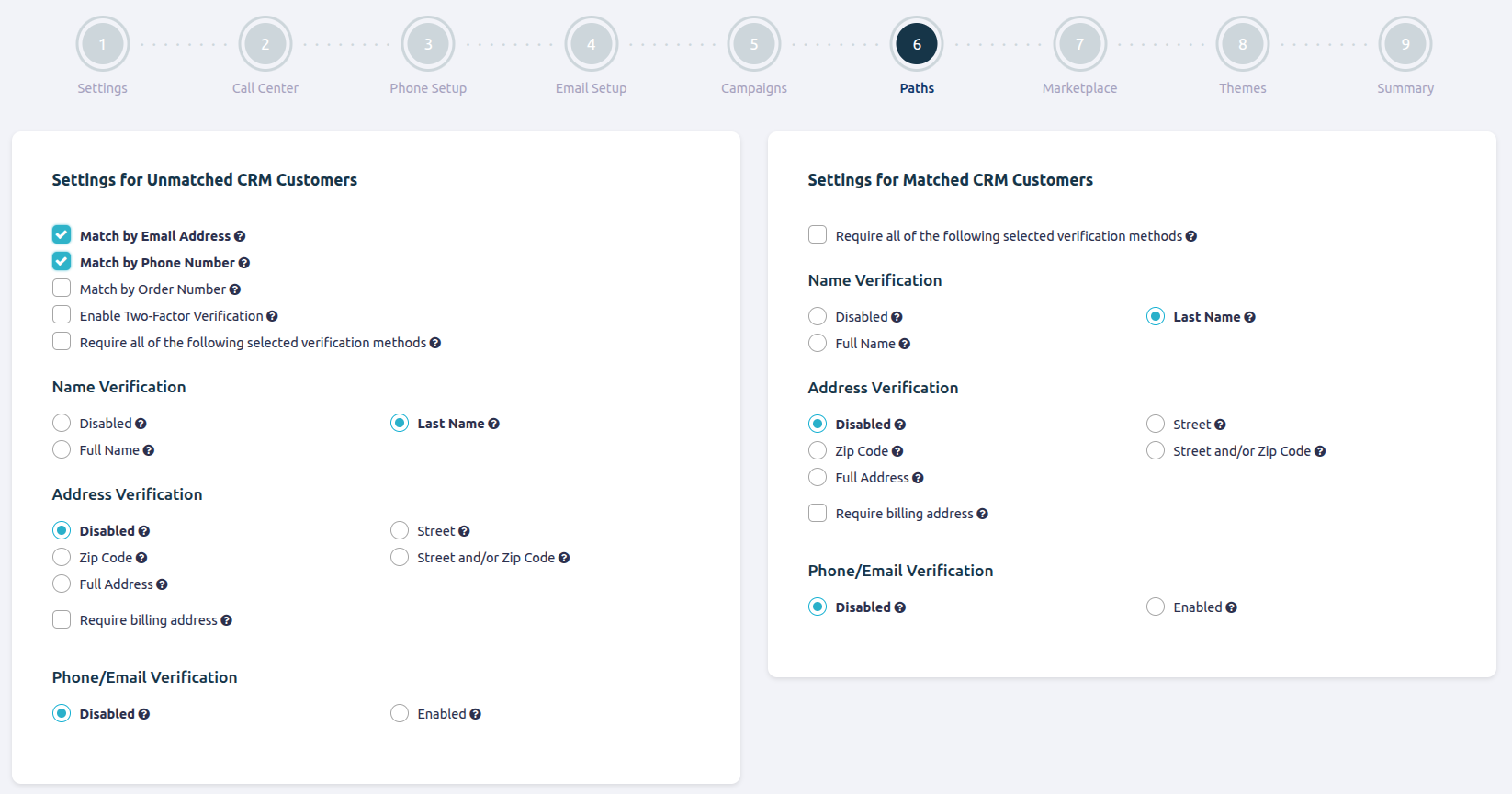
Core Features
Smart AI‑Driven Help Desk
An intelligent FAQ and virtual assistant system that uses AI and machine learning to deliver fast, relevant answers. It continuously learns from user interactions and analytics to improve support quality and operates 24/7.
Guided Visual Support Flows
Click-based, step-by-step resolution paths that help customers complete tasks like order tracking, cancellations, and returns using rich visuals, sliders, and videos for a smooth self-service experience.
Campaign-Led Automation
Outbound automation tools that drive reactivations, upsells, payment updates, and more via email or SMS. Users can complete actions in one click, without re-entering personal or payment information.
Customizable Paths and Branding
Easily customizable support flows with visual path builders, brand-specific themes, multilingual support, and built-in feedback surveys for a fully branded and user-friendly experience.
Real-Time Reporting
Gain instant visibility into key metrics with live dashboards, enabling teams to monitor customer behavior, cancellation reasons, and conversion trends as they happen.
Actionable Analytics
Analyze campaign performance and user insights to uncover patterns, optimize strategies, and make data-driven decisions that enhance both support and business outcomes.
CRM and Multi‑Channel Integration
Integrates with platforms like Konnektive and Sticky.io to access customer history and provide context-aware support across email, SMS, chat, and more.
Live Support Escalation
When automation isn’t enough, users can escalate issues to live agents through email, chat, or phone, ensuring that human help is always available when needed.
Additional Features
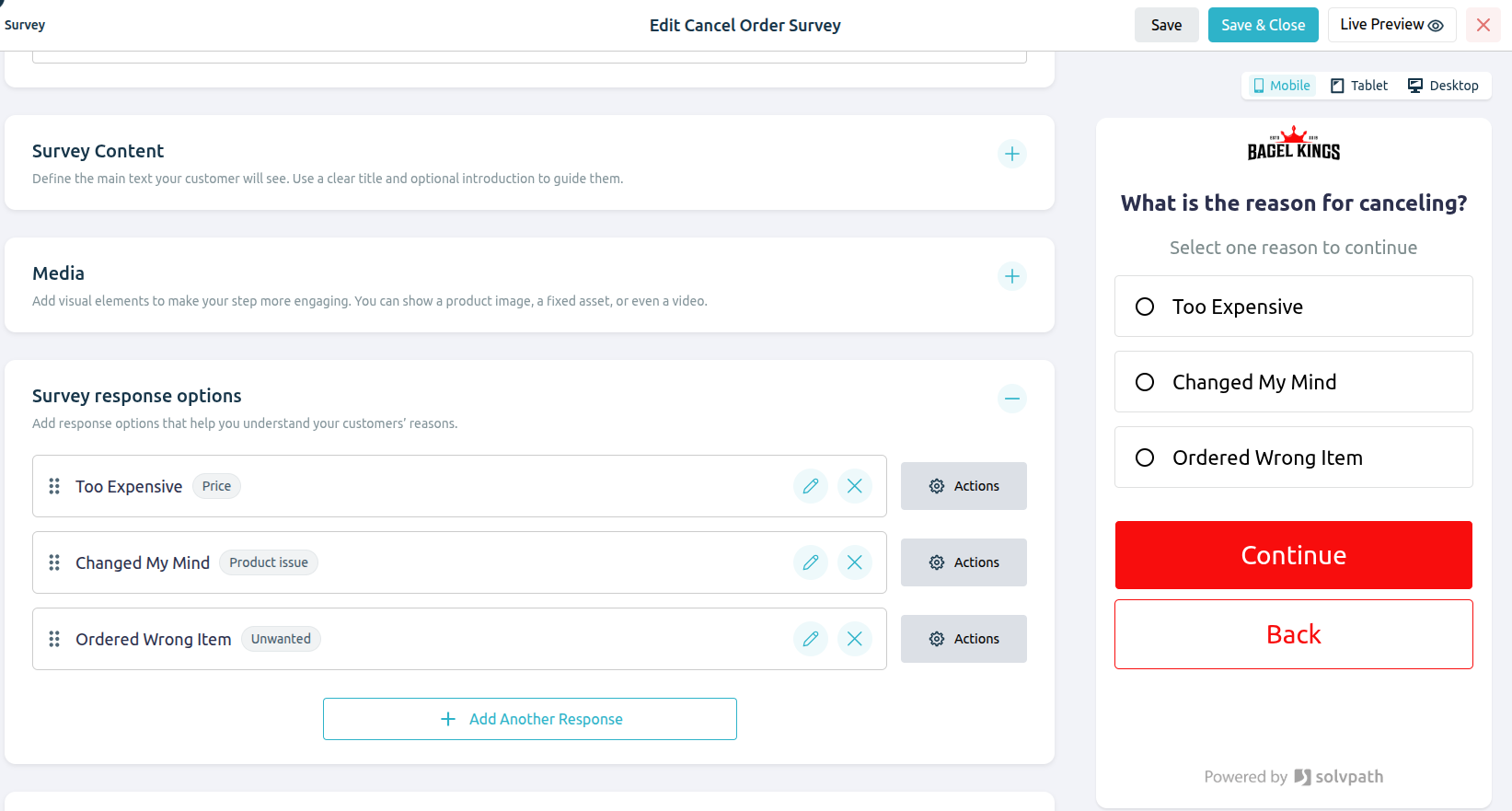
Customizable Support Flows
Easily brandable paths with visual builders and templates.
Multi-Language Support
One-click translation for global customer bases.
Built-In Surveys
Collect real-time feedback during support journeys.
Upsell & Downsell Offers
Recover sales during cancellations without re-entering payment info.
Frictionless One-Click Checkout
QuickPay for existing customers via CRM integrations.
Achievements
The platform has made a significant impact since its launch, helping e-commerce businesses transform their customer support operations. Key outcomes include:
- Reduced support costs by up to 65% by automating a large volume of inbound tickets and minimizing reliance on live agents.
- Resolved over 60% of customer issues through self-service without human intervention, improving efficiency and speed.
- Increased customer satisfaction and retention by offering fast, intuitive, and on-brand support experiences.
- Recovered lost revenue through built-in upsell and reactivation campaigns embedded in cancellation and support flows.
- Enabled rapid deployment for clients, with some brands going live in under 10 days.
- Provided deep insights into customer behavior and support performance, leading to continuous optimization.
Tech Stack
Front-End
Back-End
Deployment Strategy
Quality Assurance Strategies
Our team handled end-to-end quality assurance to ensure the platform was stable, secure, and user-friendly across all devices. We conducted thorough testing throughout the development lifecycle, including
Functional Testing
We thoroughly tested all features to ensure they worked as intended across various use cases and support flows.
Cross-Browser & Device Testing
The platform was tested on multiple browsers and devices to ensure a consistent and responsive user experience.
Performance Testing
We validated that the platform could handle high traffic and large volumes of support interactions without slowdowns.
Bug Tracking & Resolution
Our QA team actively identified, logged, and resolved bugs during development to maintain a smooth and stable release.
User Journey Validation
We walked through each support path from a customer’s perspective to ensure every flow was clear, intuitive, and error-free.
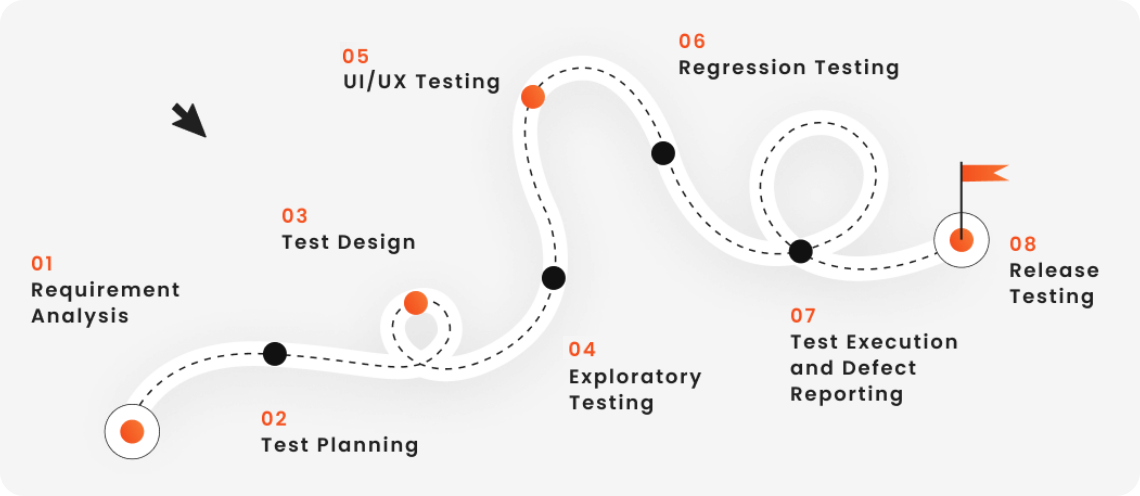
Testing Methodology
To ensure the platform met the highest quality standards, we followed a structured testing methodology throughout the development lifecycle:
Agile-Based Testing
- We aligned our QA process with the agile development cycle, testing features in sprints to catch issues early and adapt quickly to changes.
Manual Testing
- Critical user journeys, edge cases, and visual elements were manually tested to ensure a seamless experience across all touchpoints.
Regression Testing
- Before every release, we performed regression tests to make sure new updates didn’t break any existing features or flows.
Smoke Testing
- We used smoke testing after each deployment to verify core functionality.
Usability Testing
- Real user scenarios were simulated to validate ease of use, clarity of support flows, and overall user experience.
Security & Access Control Testing
- Validated user roles, data protection, and secure server access to safeguard sensitive project information.
Why we used this particular methodology?
We selected this testing methodology to ensure speed, reliability, and flexibility throughout the development process. The platform required a high level of accuracy and performance across multiple user journeys, devices, and integrations, so our approach needed to cover both depth and speed.
Aligned with Agile Development
Working in sprints allowed our QA team to test features as they were developed, enabling faster feedback and continuous improvements.
Focus on Real User Scenarios
Usability and regression testing helped us ensure the platform worked smoothly for end users, even after frequent updates or changes.
Minimized Risk of Bugs in Production
By combining smoke, sanity, and regression testing, we reduced the chances of issues making it into live environments.
Scalability for Future Growth
Our approach ensured the platform could scale with future updates and user growth, with testing processes already in place to support new features and higher volumes.
Project Management
Agile Methodology
Used Agile methodology to allow flexible planning and adapt to changes quickly.
User Feedback
Collected user input regularly and made improvements based on it.
Team Collaboration
Developers, designers, and testers worked together closely.
Tools Used
Figma, managed tasks with Asana communicated through Slack.
Scrum Process
Held daily check-ins, planned sprints, and reviewed progress regularly.
Planning
Carefully schedule tasks, assign resources, and set clear milestones to meet deadlines.
